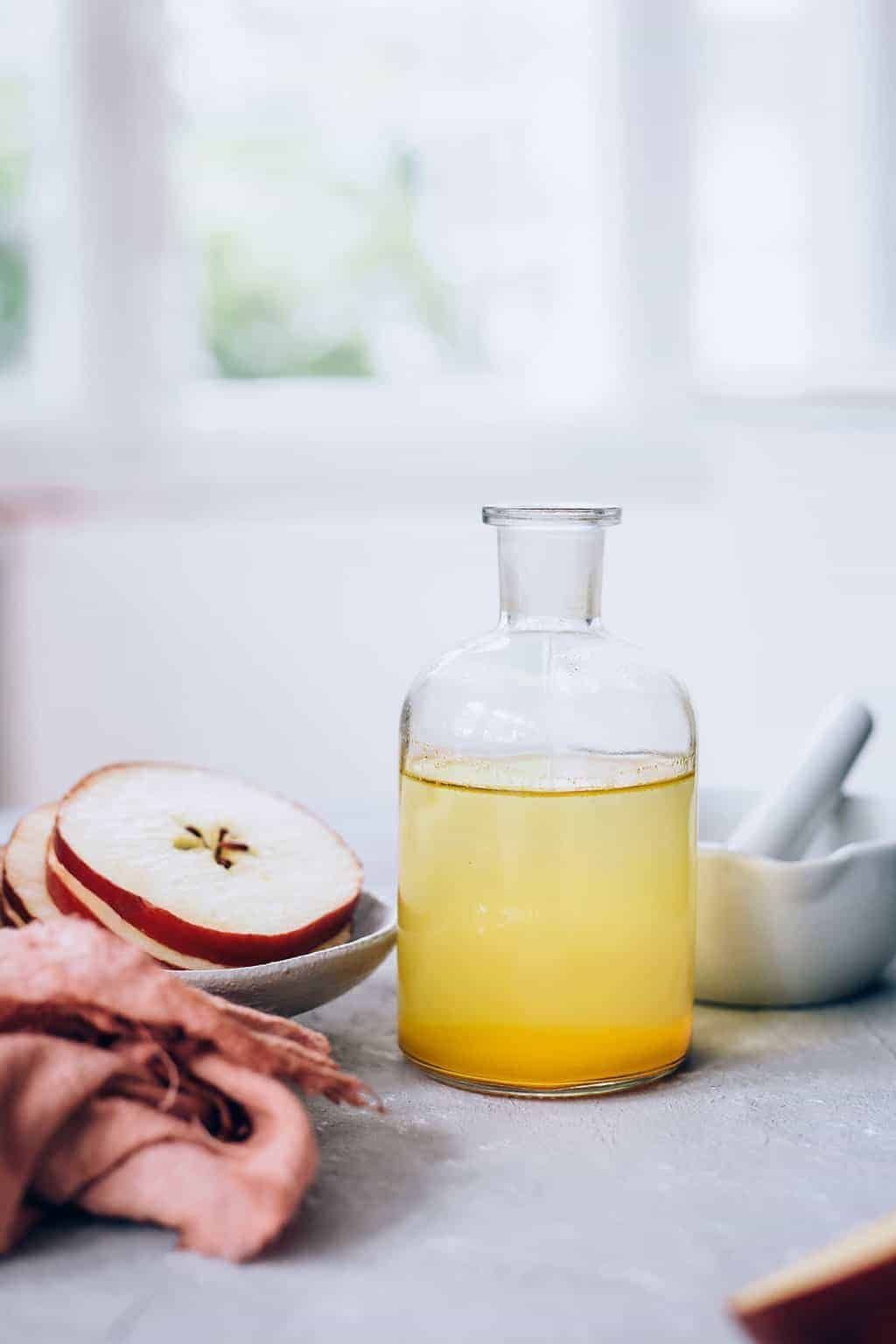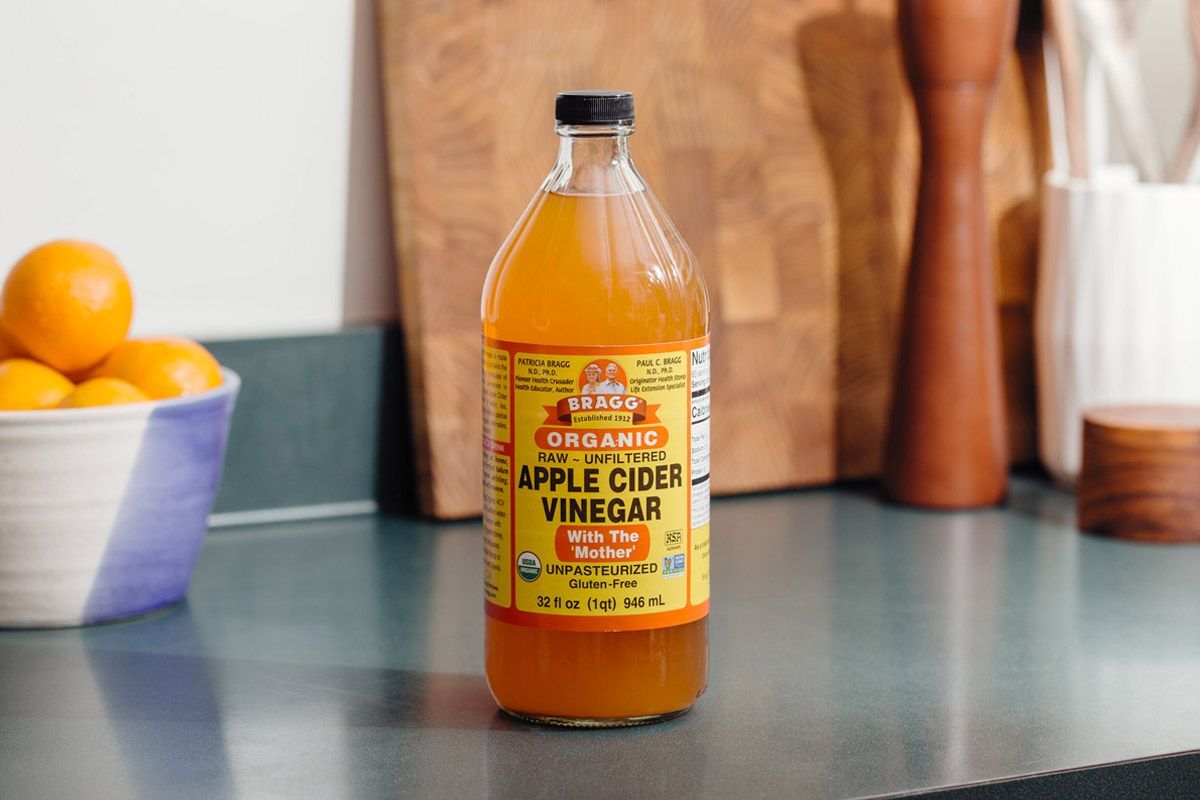Our recommendations are made independently. We may receive commissions from purchases made via our links.
How to Drink Apple Cider Vinegar
Apple cider vinegar is purported to promote many health benefits. Here is how to drink apple cider vinegar to get the most out of each cup!
Because it has gained quite a bit of popularity all over the internet, you may want to know how to drink apple cider vinegar (ACV) properly.
You can find many articles online praising its ability to help you lose weight, improve blood sugar levels, and aid with indigestion. So, it’s no surprise that ACV diets — those that suggest drinking ACV daily — have become so popular.
In this article, we’ll show you how to make the most out of each serving of ACV.
What Are the Health Benefits of Drinking ACV?
There are many different claims floating around online concerning ACV. From calming an upset stomach to protecting against heart disease and cancer, this mixture of fermented apple cider is sometimes touted as a miraculous cure-all.
Unfortunately, the research is unreliable at best. There is very little supporting evidence that regularly consuming ACV can bring any kind of health benefits at all.
But research does exist. A study in 2009 found that consuming 0.1 to 2 tablespoons of ACV a day led to a modest decrease in weight and lower triglyceride levels.
The results of a newer study done in 2018 are also positive. The group who consumed ACV regularly lost more weight after 12 weeks than the group who did not.
However, both were small-scale studies performed over relatively short timespans. So, those two papers cannot really tell the long-term effects it may have on weight and blood sugar levels. There is also no evidence to suggest that ACV can help with either preventing or treating heart disease and cancer.

Are There Any Potential Harms to Drinking ACV?
For most people, drinking ACV won’t result in any harm. However, people should be extra cautious about pursuing the ACV diet if they have certain conditions or are on medication.
ACV can reduce blood potassium levels (hypokalemia). Water pills, or diuretics — a common class of medicines used to treat high blood pressure — also reduce potassium levels. If taken together, they can cause your blood’s potassium content to sink to unhealthy levels.
Among the many professed health benefits of ACV is that it is a cure for heartburn. However, if you have an acid reflux problem, we do not recommend you consume ACV. Because ACV is highly acidic, drinking it is likely to worsen your symptoms, not improve them.
Instead of trying to use ACV as a natural cure for heartburn, stick to tried-and-tested medicines like proton pump inhibitors.
Vinegar — including ACV — can also change your insulin levels. If you’re diabetic, the ACV diet is not recommended.
Lastly, ACV is acidic and may damage your tooth enamel. As a result, before you drink, we highly recommend you dilute it with water.
Other Side Effects of ACV to Watch Out For
Because of the high acidity of ACV, you may experience a burning sensation in the throat. This effect is especially common among those who drink undiluted ACV. It’s yet another reason why you should water it down before drinking.
ACV may also cause gastroparesis, a condition where the stomach takes a long time to empty itself of food. Gastroparesis can cause bloating, gas, and nausea.
But these are actually the least of your problems if you’re on certain medications. Diuretics, laxatives, insulin, and high blood pressure medicines must pass quickly through your stomach and be absorbed.
If you take any of them, ACV-induced gastroparesis can reduce their effectiveness. Therefore, it’s best that you stay away from this diet if you take any of these medications.
How Much Apple Cider Vinegar A Day?
As expected, there’s no solid information on how much apple cider vinegar you should drink in a day. The most-quoted research (2009) indicated that 0.1 to 2 tablespoons of ACV per day is conducive to weight loss and reduced blood sugar levels.
Mix 1 to 2 tablespoons of ACV in 17.5 ounces (500ml) of water. This is the same proportion that was used in the research. Once again, dilution is important. Do not drink straight ACV.

When to Drink Apple Cider Vinegar?
Since there aren’t any formal guidelines as to when you should drink ACV, we will again take the diet plan designed by the same 2009 study.
After diluting your ACV in a 17-ounce bottle, separate it into two equal portions of roughly 8.75 ounces.
Drink one portion after breakfast and the other portion after supper.
We don’t recommend you drink any before meals. Although ACV is rumored to be an appetite suppressant, it’s actually not. The reason you feel so full after drinking is simply because you just drank 8.75 ounces of water at once. After you urinate and all of that water is expelled, you will actually come back even hungrier.
That’s not even the full story, though. The faux-fullness created by ACV beverages could make you feel very weak. ACV contains almost no calories at all. If drinking it before meals reduces your appetite, it may trick your body into not consuming enough energy for the day.
How Long Does Apple Cider Vinegar Last?
This is especially important to know if you brew your own ACV at home. Like most vinegars, ACV generally has a very long shelf life. The high acidity prevents bacteria and mold from breeding.
When refrigerated, ACV can last up to a year. If you buy your ACV from the store and don’t break the bottle’s seal, it can last up to two years.

(A commercial bottle of ACV will last for up to 2 years if the sealing isn’t broken or damaged.)
Making ACV at home is very simple as well as cheaper than purchasing from the store. Since you can adjust the flavor during the brewing process, there’s a good chance that it will taste better, too.
You can check out our guide on how to make apple cider vinegar at home for more information.
Conclusion
The most important parts of learning how to drink apple cider vinegar are moderation and knowledge.
You shouldn’t consume too much of it all at once. Don’t put too much faith in its purported benefits, either. Evidence regarding its health benefits is tentative at best. But if you moderate your intake, you could extract some usefulness out of this drink!





